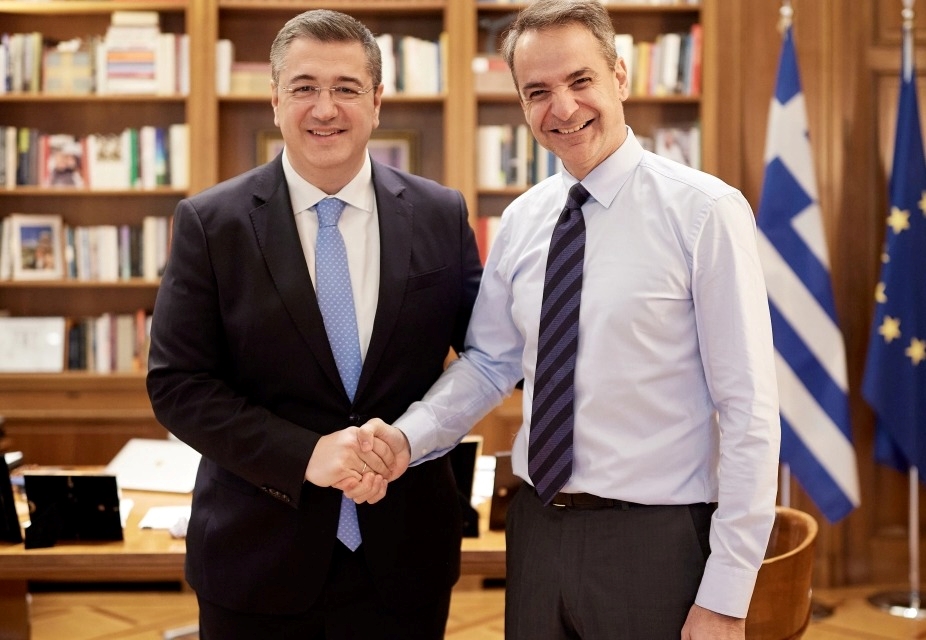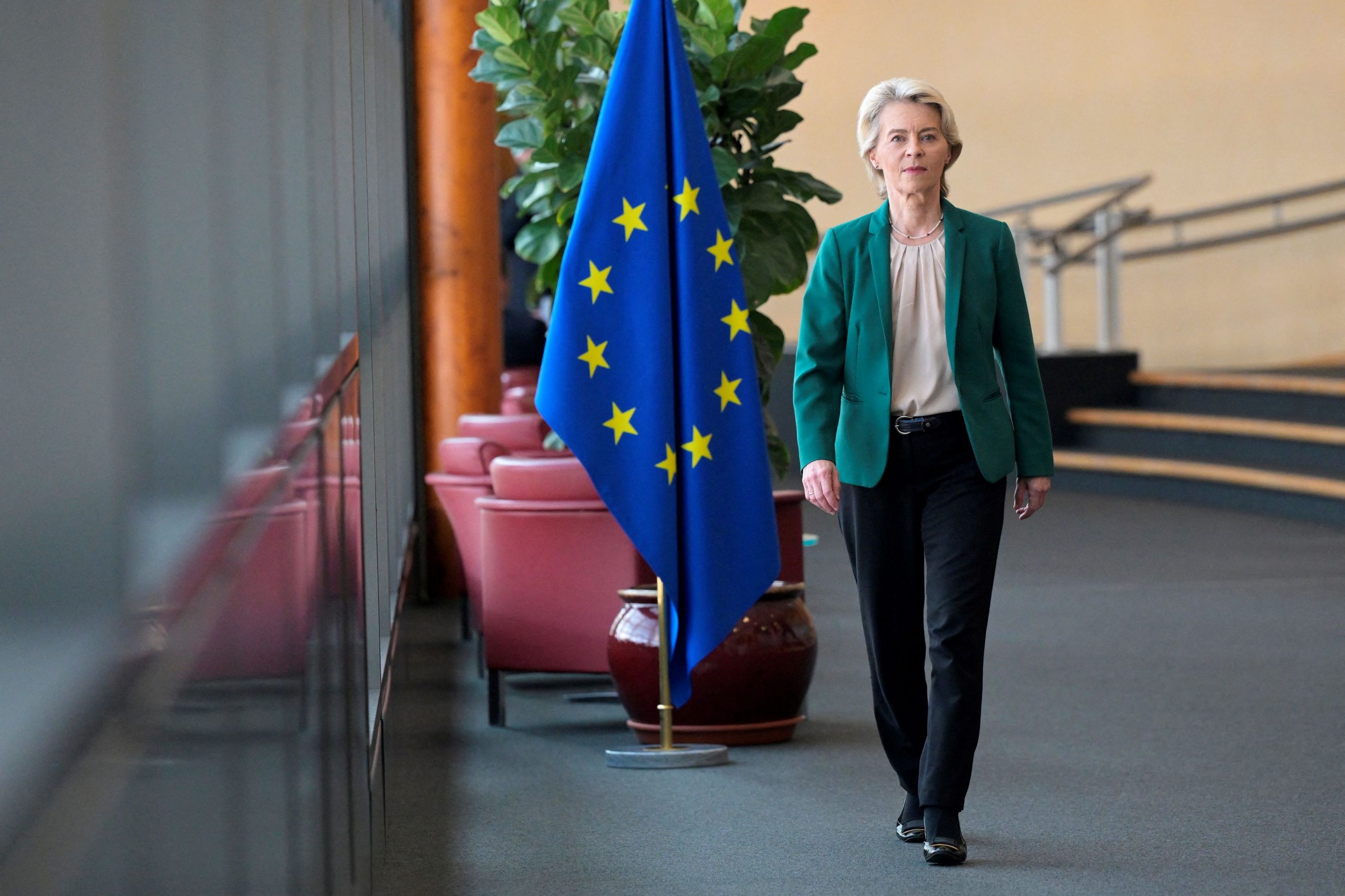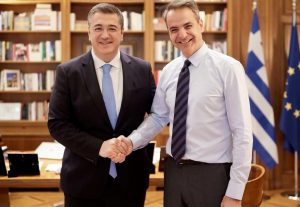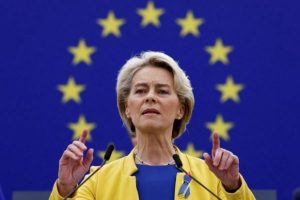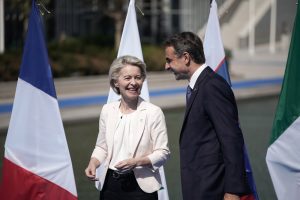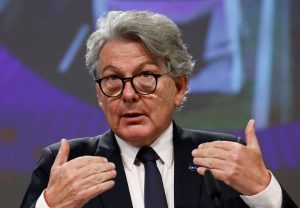She was challenged and had to deal with the most… unruly member-states, but she has finally presented a new College of Commissioners-designate which has her personal stamp all over it, but also takes into account the needs and weaknesses of EU’s leaders.
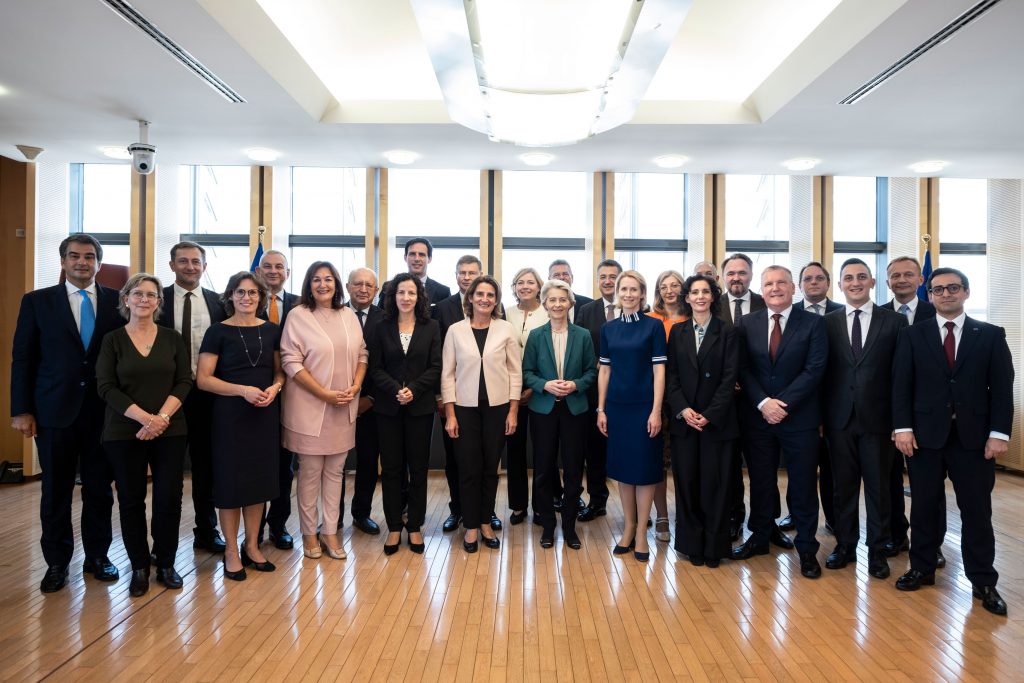
European Commission President Ursula Von der Leyen poses during a first meeting with European Commissioners designated in Brussels, Belgium on September 18, 2024.
As Henry Foy, the Financial Times’ Brussels Bureau chief, noted to To Vima, Ursula von der Leyen “has managed to assemble a team that, even despite political differences, looks set to dance to her tune. The most important files are either held by center-right allies or trusted loyalists, while the complex structure of overlapping competences means she remains the ultimate arbiter.”
At the same time, Henry Foy focuses on the “clear” and “present need for an economic reboot to fix the EU’s competitiveness, and the new Commission has enough good competent executives to take that forward. But, even more so than her first term, von der Leyen will be calling the shots and the personalities will matter far less than the president’s prerogative.”
The EU’s southern member-states are generally satisfied with the portfolios they have received, while Austria, which will have control over migration, is one of the countries that imposes a strict policy in this area. Questions have been asked about France’s Stéphane Séjourné’s ability to handle the prosperity and industrial strategy portfolio.
As for tourism, which now falls within Greece’s remit, a senior EU official noted there have long been calls for a specific portfolio in this area, which is an important factor in the economies of many member-states and accounts for 20%-30% of some countries’ GDP.
“The structure and composition of the new Commission is a clear attempt to respond to Europe’s need for greater security and competitiveness in a difficult and demanding international environment in which Europeans feel deeply insecure and Europe seems stagnant,” Vassilis Ntousas of the German Marshall Fund told To Vima.
The head of the Commission has also been generous with those countries that changed their initial selection in order to propose a female candidate. Slovenia’s Marta Kos was given the portfolio for the enlargement and reconstruction of Ukraine in return.
However, her professional relationship with a consultancy and lobbying firm may ultimately lead to her being rejected by MEPs. “All the confirmation hearings will be difficult,” a senior EU official commented, adding that “it is true that those who have already been through the process tend to have a slight advantage.” Some old timers have even reportedly told the “rookies” that the hearings were the toughest test they’d ever faced, with the Commission President pointing out, according to information, that they should “set aside” their nationalities now and respond as members of the Commission.
The hearings may prove difficult for the current Hungarian Commissioner for Neighborhood and Enlargement and commissioner-designate for the Animal Health and Welfare portfolio, Olivér Várhelyi, who could be rejected. This would ignite a new clash with Viktor Orbán, who will have already noted the downgrade to what is no longer considered a first-tier portfolio.
On the X Platform, Henry Foy was scathing about Várhelyi, for getting a “key position amid reports from some Budapest-aligned world leaders that citizens are eating pets,” in a clear jibe at Donald Trump on the other side of the Atlantic.
The Maltese Glenn Micallef is also expected to have a rocky road ahead of him, though the fact the President of the European Parliament is also Maltese may prove a lifeline.
Finally, “it’s possible, on paper, that the hearings could start on 1 November,” a senior EU official explained, noting that it would be good to get them underway as soon as possible in the light of external factors, too, such as the US elections. If the Commission sticks to this timetable, Ursula von der Leyen could be ringing the bell to mark the opening of the new College as early as December 1.
